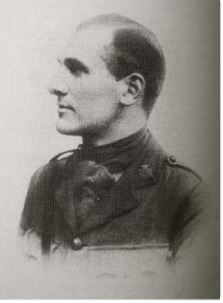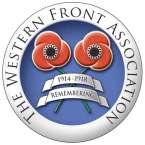Royal Gloucestershire Hussars

John Crosbie Bengough was born in 1889 in a large country house, two miles north of Wotton-under-Edge. His father was a JP and his grandfather had been High Sheriff of Gloucestershire in 1877. He was educated at Rugby School and graduated from Emmanuel College, Cambridge in 1911. He obtained a commission in the Royal Gloucestershire Hussars (RGH) in 1913, after two years farming in the Transvaal.
He was with the RGH in Egypt in 1915 and was made a Staff Captain and Military Landing Officer at Alexandria. It was in this capacity that he was sent to ‘W’ Beach at Gallipoli in July of that year. In the following October he re-joined the RGH at Suvla Bay. He undertook several jobs whilst at Suvla, amongst them Divisional Bombing Officer, commander of a trench mortar battery and principal officer of a bombing school. Following the evacuation of Gallipoli he was appointed Camp Commandant and ADC to the GOC of the Egyptian Western Frontier Force.
In February 1916 Captain Bengough was temporarily lent to the Queen’s Own Dorset Yeomanry and on the 26th of that month they mounted a cavalry charge against the Senussi Arabs, who had allied themselves to the Turks, at Agagia, in Western Egyptian desert. Captain Bengough was killed in what was described as a ‘brilliant and successful charge’: he was 27 years of age.
On 9 April 1916 the General Commanding British forces in Egypt mentioned him in a despatch ‘for gallantry and distinguished service in the Field’. His brother officers wrote:
‘He was a most gallant fellow, upright and keen in everything he undertook. His work as a soldier was always so excellent. Everyone of all ranks in his Brigade is today mourning the loss of a dear comrade’.
Captain John Crosby Bengough is buried at Chatby Military Cemetery at Alexandria and is commemorated on the RGH Memorial at Gloucester, the War Memorials at Rugby School and Wotton-under-Edge, and on a plaque inside St Mary’s Church, Wotton-under-Edge.
